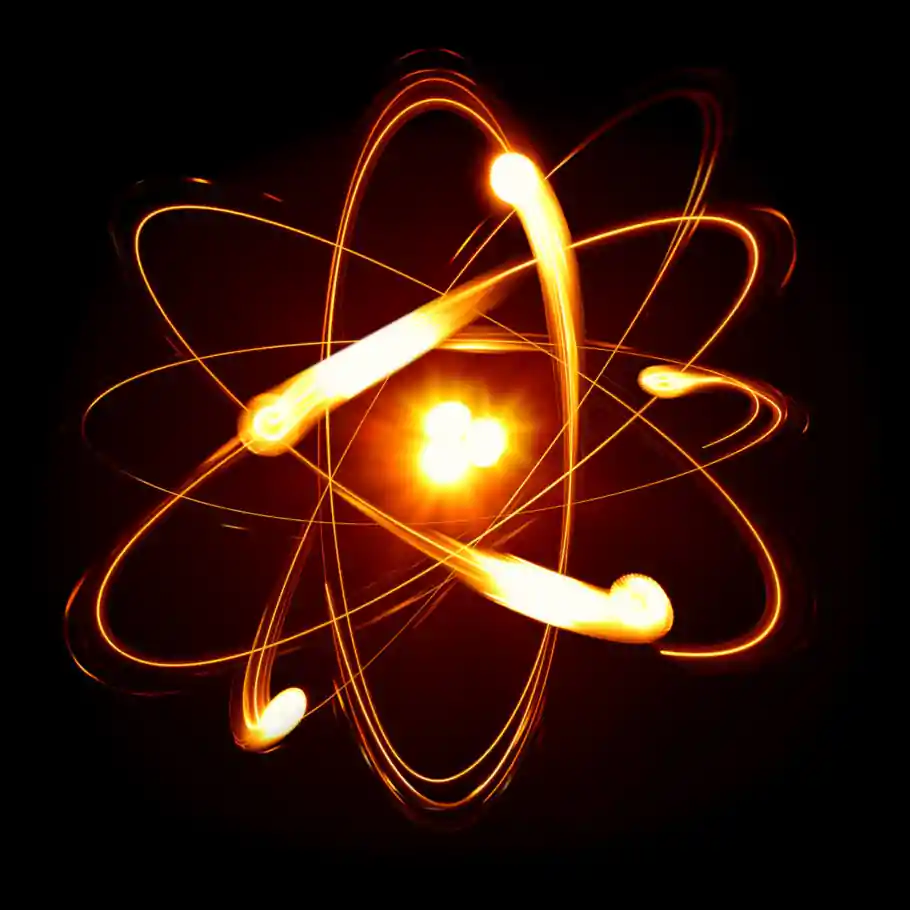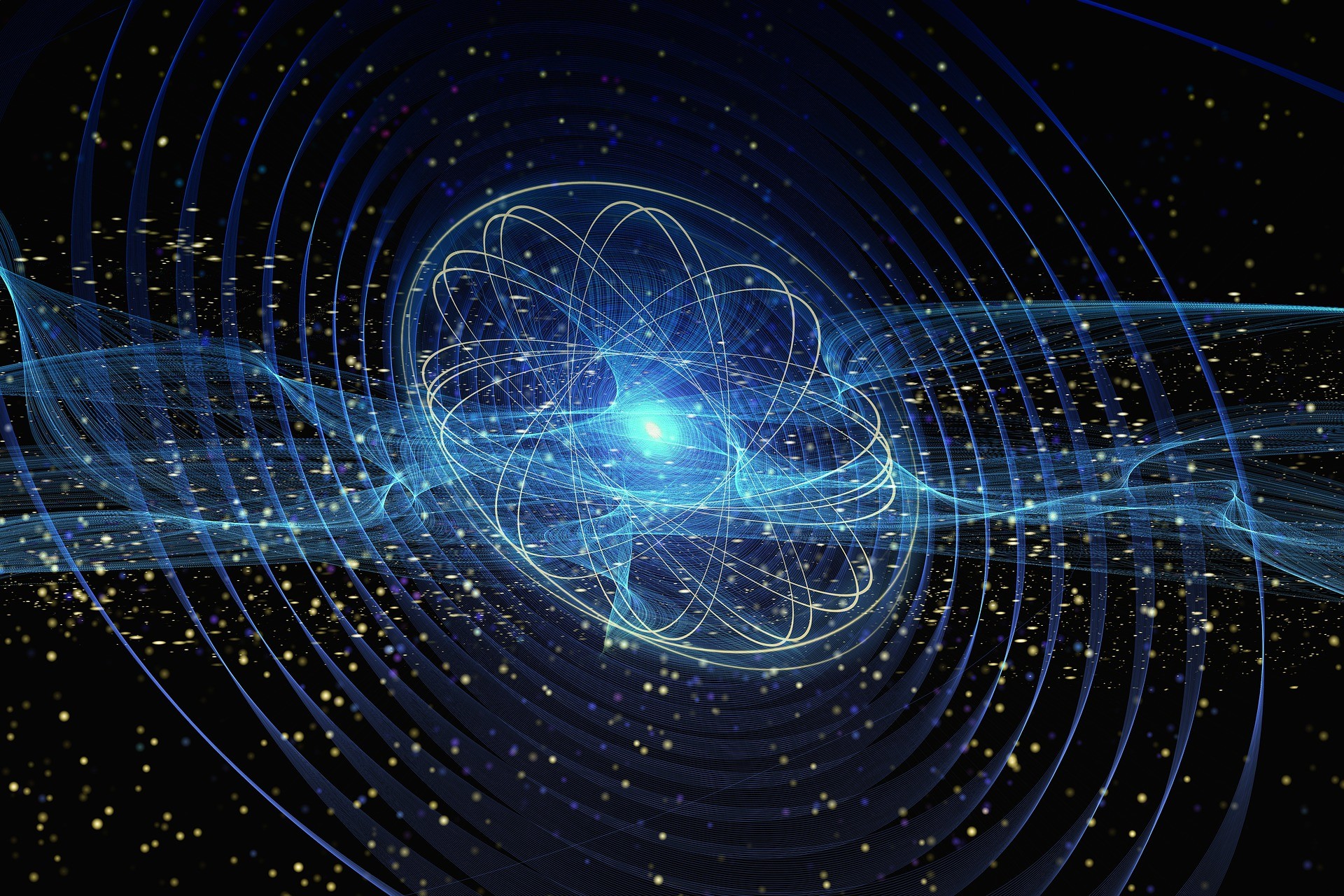Imagine a universe where particles can exist in multiple states at once, where observing alters reality, and where instant communication defies cosmic distances. This is quantum mechanics, the science that governs the behavior of matter and energy at the smallest scales. In 2025, with advances in telescopes like James Webb and cutting-edge space missions, quantum mechanics is revolutionizing our exploration of space. From ultra-precise sensors to secure communications, its applications are shaping the future of astronomy and space travel. At The Astronomy Insider, we explore how quantum mechanics works, its role in space, and how you can connect with these fascinating ideas. Let’s dive into the quantum world!
What is Quantum Mechanics?
Quantum mechanics is a branch of physics that describes the behavior of subatomic particles, such as electrons, photons, and quarks, where Newton’s classical laws don’t apply. Unlike the macroscopic world, where objects have defined positions and velocities, the quantum realm is ruled by uncertainty and probability. Key principles include:
- Superposition: A particle can exist in multiple states simultaneously until observed (e.g., the famous “Schrödinger’s cat” thought experiment).
- Quantum Entanglement: Particles can be linked so that the state of one instantly affects the other, even across cosmic distances.
- Heisenberg’s Uncertainty Principle: It’s impossible to know both a particle’s exact position and velocity simultaneously.
- Wave-Particle Duality: Particles, like photons, exhibit both particle and wave-like behavior, depending on how they’re observed.
Applications of Quantum Mechanics in Space
Quantum mechanics drives revolutionary advances in space technologies, enabling everything from ultra-precise measurements to secure communications. Here are the key applications:
1. Quantum Sensors for Astronomy
Sensors based on quantum principles, such as atomic interferometers and atomic clocks, offer unmatched precision. For example:
- Atomic Clocks: Used in GPS satellites, these clocks leverage quantum transitions in atoms (like cesium or rubidium) to measure time with billionth-of-a-second accuracy, critical for synchronizing navigation signals in space missions.
- Quantum Interferometry: Telescopes like the Event Horizon Telescope, which captured the first black hole image in 2019, use quantum techniques to combine data from multiple observatories, creating high-resolution images of distant objects.
In 2025, quantum sensors are being tested to detect gravitational waves in space, enabling detailed studies of cosmic events like black hole collisions.
2. Secure Quantum Communication
Quantum entanglement enables ultra-secure communications, known as quantum cryptography. Satellites like Micius, launched by China in 2016, demonstrated the transmission of quantum keys between Earth points, protected from interception due to entanglement properties. In 2025, ESA and NASA are developing quantum networks for communications between spacecraft and ground stations, vital for long-distance missions like Mars exploration.
3. Quantum Computing for Data Analysis
Quantum computing, using qubits in superposition to process information, is revolutionizing the analysis of vast astronomical datasets. For instance:
- Simulations of cosmic phenomena, like galaxy formation, that would be impossible on classical computers.
- Analysis of data from the James Webb Space Telescope, which generates terabytes of information about exoplanets and primordial galaxies.
In 2025, companies like IBM and Google are partnering with space agencies to apply quantum computers to future missions.
4. Quantum Propulsion and Navigation
While still theoretical, concepts like quantum vacuum engines (using energy fluctuations in space) are being explored. Additionally, quantum gyroscopes based on ultracold atoms could enhance spacecraft navigation, eliminating the need for mechanical systems prone to failure.
Why Quantum Mechanics Matters for Space
Quantum applications are transforming space exploration in several ways:
- Unprecedented Precision: Quantum sensors and clocks enable more efficient and accurate missions.
- Security: Quantum cryptography safeguards sensitive data in space communications.
- New Discoveries: Quantum computing accelerates data analysis, unlocking secrets about the universe.
- Future of Space Travel: Quantum technologies could enable long-duration missions, like journeys to exoplanets.
Moreover, quantum mechanics sparks philosophical questions: Could entanglement connect the universe in ways we don’t yet understand? These ideas bridge science and human curiosity.
How to Observe Quantum Mechanics’ Impact in the Sky
Though quantum mechanics operates at microscopic scales, its applications are visible in space technologies and celestial events. Here’s how to connect:
- Follow Space Missions: Stay updated with NASA (@NASA) or ESA (@esa) on Twitter/X for news on quantum technologies in satellites and telescopes.
- Observe the Night Sky: Use apps like Stellarium to locate constellations or planets. In May 2025, Jupiter is bright, perfect for binocular viewing, as you ponder the quantum technologies exploring the cosmos.
- Join Events: The planetarium centennial on May 7, 2025, is a great chance to visit a planetarium and learn about modern science.
- Explore Science: Read about black holes or exoplanets, whose discoveries rely on quantum technologies. Check out “Wandering Black Holes: What is AT2024tvd and Tidal Disruption Events?” on our blog!
What do you think of quantum potential in space? Share your thoughts in the comments and join The Astronomy Insider for more cosmic content!
Sources
- NASA Science. “Quantum Technologies for Space Exploration.” Accessed May 21, 2025. https://science.nasa.gov/technology/quantum-technologies/
- ESA. “Quantum Communication and Cryptography.” 2024. https://www.esa.int/Applications/Telecommunications_Integrated_Applications/Quantum_Communication
- “Quantum Computing for Astronomy: The Next Frontier.” Scientific American, January 2025.
- Post on X by @NASA, May 10, 2025.
- Post on X by @esa, May 15, 2025.






No comments:
Post a Comment